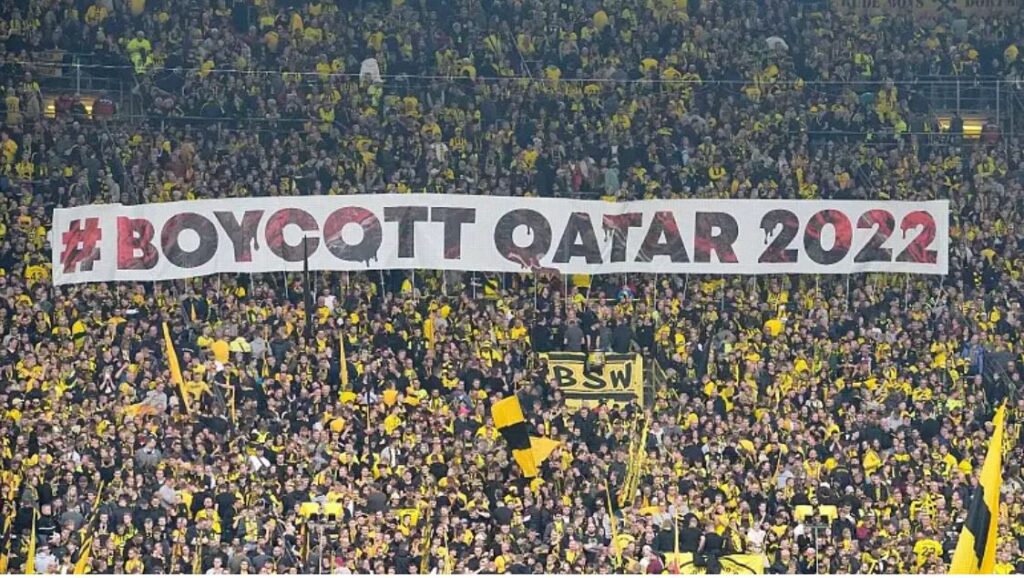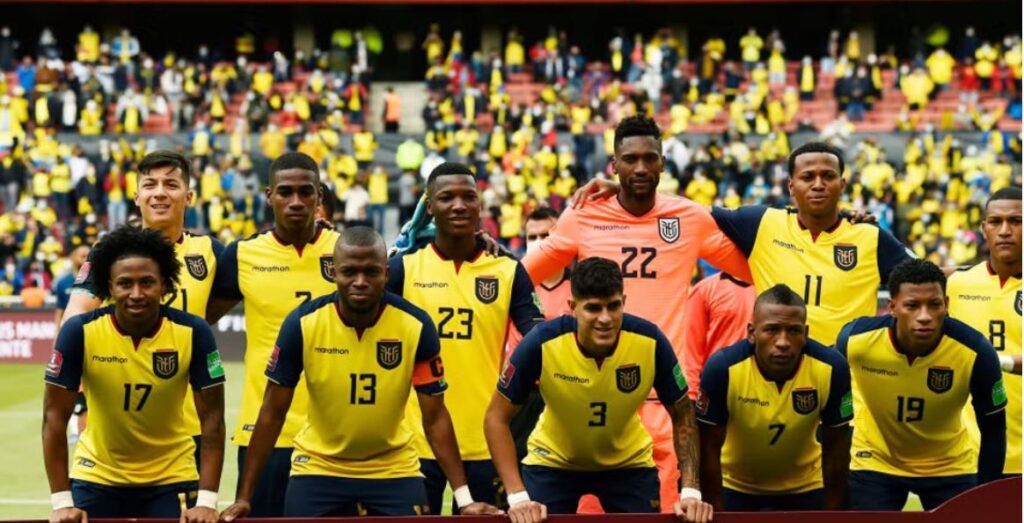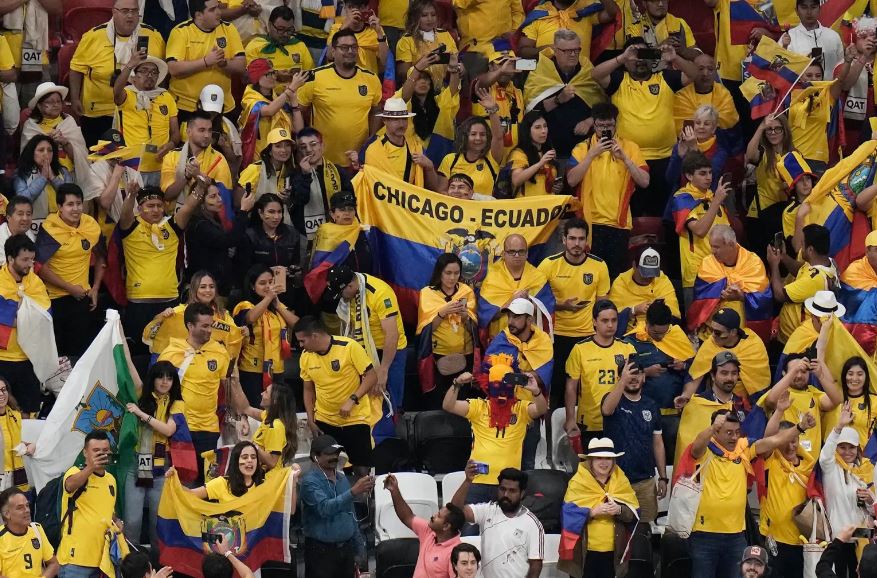Like millions of others I have been glued to my TV watching my country play in the Fifa World Cup in Qatar. However, watching the World Cup has felt similar to when I watched Game of Thrones and The Walking Dead: I have enjoyed it while also being struck by the huge problems with the whole thing.
Fifa awarding the World Cup to Qatar raised the question: how bad does a country’s human rights record have to be to disqualify it from hosting?
Qatar is a non-democratic, country that has been ruled by the House of Thani family monarchy since Mohammed bin Thani signed a treaty with the British in 1868. In early 2017, Qatar’s total population was 2.6 million, with 313,000 of them Qatari citizens and 2.3 million expatriates. Eighty-eight per cent of the population are foreign workers, mostly South Asians, with those from India alone estimated to be around 700,000. Egyptians and Filipinos are the largest non-South Asian migrant group. The treatment of these foreign workers has been heavily criticized with conditions suggested to be modern slavery.
This isn’t the first time Fifa, the global football governing body founded in 1904, has awarded the World Cup to a country with a horrible historical and ongoing record of human rights violations. The 1934 World Cup was held in Italy during the reign of fascist dictator Benito Mussolini, an ally of Hitler. The 1978 World Cup was in Argentina when military officer and dictator Jorge Rafael Videla was president. Wikipedia describes Videla’s reign as “among the most infamous in Latin America during the Cold War, due to its high level of human rights abuses and severe economic mismanagement”. And the 2018 World Cup was in Russia when Vladimir Putin was in power – and had invaded Crimea in 2014.
And just as we can ask how bad a country’s human rights record has to be to be disqualified from hosting the World Cup, we can also ask: how bad does it have to be for countries to boycott the event?
Clearly, no country found Qatar’s human rights record bad enough to boycott the World Cup. Norway and Germany’s governing football bodies considered boycotts that they decided against in the end. (Norway’s decision was made easier by Norway failing to qualify for the tournament.) In Germany, this was despite a strong boycott movement that saw fans hoisting huge #Boycott Qatar 2022 banners at German Bundesliga matches.

Qatar hosting the World Cup also raises other questions, including: are some human rights more valued than others and do human rights vary country to country? The answer to both questions seems to be a clear yes.
Homosexuality is punishable by death in Qatar (so they probably won’t be hosting the women’s World Cup anytime soon given openly gay superstars like Canada’s Christine Sinclair and American Megan Rapinoe). And Fifa didn’t just tacitly support Qatar’s state-sanctioned homophobia by awarding Qatar the World Cup. It also threatened seven teams whose captains vowed to wear OneLove arm bands with sanctions if they did. The OneLove armbands were originally launched in 2020 as part of an inclusiveness campaign by the Royal Dutch Football Association (KNVB). Reuters reported that the KNVB campaign opposes discrimination on the basis of race, skin colour, sexual orientation, culture, faith, nationality, gender, age and “all other forms of discrimination”. Captains from England, Wales, Belgium, the Netherlands, Switzerland, Germany and Denmark were planning on wearing the armbands to protest Qatar’s laws against same-sex relationships. Fifa threatened to issue yellow cards to any player wearing the armband which could have led to them missing games. All seven teams abandoned their plans.
Some may wonder if Fifa is putting profits above people and considering Fifa recently said it has made $7.5 billion from World Cup commercial deals over the last four years, that appears to be the case. But it’s not only Fifa that put their morals on hold. The sponsors behind those commercial deals – including Adidas, Coca-Cola, Hyundai-Kia, Visa, Anheuser-Busch InBev and McDonalds – have all also apparently chosen profits over people. This is despite companies like Coke issuing statements like Coke’s 2019 How Coca Cola Supports Inclusion and Equality for the LGBTQ+ Community.
The thousands of fans attending in person also decided it’s OK to turn a blind eye to Qatar’s human rights policies and pump millions into the already rich Qatari economy. Will they also continue buying sponsors’ products with this massive stain on those companies’ claims of LGBTQ+ support? And, if they do, what incentive will those companies have to change their behaviour? Clearly, very little…
Another issue is that, although the Qatar World Cup has exposed how capitalism values profit over people, almost every World Cup exposed how unequally those profits are distributed.
Watching the World Cup one is struck by how many Black faces there are on the field vs Black faces in the stands. This is particularly striking for countries like France, Ecuador and especially Brazil – where over half the population is Afro-Brazilian – but there’s barely a Black face to be seen among the country’s World Cup fans. Attending any World Cup is expensive so the colors of a country’ fans give some indication who has the money in those countries.


Fifa’s actions aren’t that surprising as, since Fifa awarded Qatar the World Cup in 2010, more than half of the 22 members of the FIFA Executive Committee which voted for Qatar have either been implicated in or investigated for alleged corruption or other bad practices, according to DW.com.
It would be great if football fans used their collective power to demand that Fifa do things like adopting the principle that if it wouldn’t award the women’s World Cup to a country because of human rights issues, it shouldn’t award that country the men’s World Cup either.
North American activists will no doubt ensure that the human rights records of Canada, the U.S. and Mexico will be highlighted in the run up to the 2026 World Cup – and well they should, because clearly Fifa won’t.